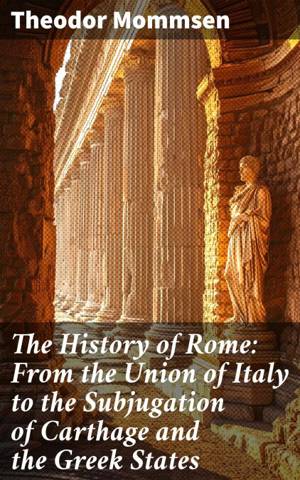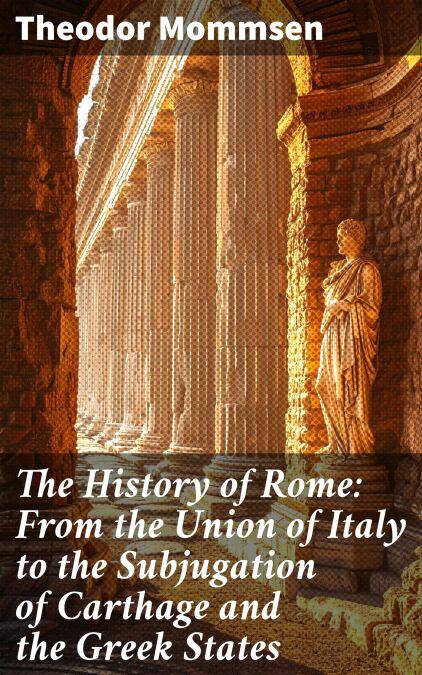
- Retrait gratuit dans votre magasin Club
- 7.000.000 titres dans notre catalogue
- Payer en toute sécurité
- Toujours un magasin près de chez vous
- Retrait gratuit dans votre magasin Club
- 7.000.0000 titres dans notre catalogue
- Payer en toute sécurité
- Toujours un magasin près de chez vous
The History of Rome: From the Union of Italy to the Subjugation of Carthage and the Greek States EBOOK
Unveiling Rome's Ascendance: Conquests, Politics, and Power
Theodor Mommsen
Ebook | Anglais
1,99 €
+ 1 points
Description
In "The History of Rome: From the Union of Italy to the Subjugation of Carthage and the Greek States," Theodor Mommsen presents a meticulously crafted narrative that chronicles the transformative events of the Roman Republic from the late 4th century BC to the Roman conquest of Carthage and the Greek territories. Mommsen's literary style is characterized by its vivid prose and analytical rigor, blending historical detail with engaging storytelling. The work is situated within the broader literary context of 19th-century historiography, where Mommsen's unique perspective illuminates the socio-political dynamics of ancient Rome, presenting a richly textured view of its rise and imperial ambitions. Theodor Mommsen, a German classical scholar and politician, was awarded the Nobel Prize in Literature in 1902 for this very work, which reflects his deep engagement with Roman history and its lasting implications on Western civilization. His extensive studies in philology and archaeology informed his comprehensive approach to history, linking the political and military events of Rome with the cultural evolution of its society. Additionally, his commitment to civic duty and belief in progress may have influenced his interpretation of Rome as a model of governance and civilization. Readers seeking to deepen their understanding of Roman history will find Mommsen's work indispensable. With its scholarly depth and eloquent presentation, this book not only serves as a foundational text for aspiring historians but also appeals to general readers fascinated by the complexities of ancient Rome. Drawing from timeless historical insights, Mommsen's narrative invites reflection on the nature of power and its consequences, making it a compelling read for anyone interested in the legacies that shape our modern world.
Spécifications
Parties prenantes
- Auteur(s) :
- Traducteur(s):
- Editeur:
Contenu
- Nombre de pages :
- 527
- Langue:
- Anglais
Caractéristiques
- EAN:
- 8596547506614
- Date de parution :
- 11-08-23
- Format:
- Ebook
- Protection digitale:
- Digital watermarking
- Format numérique:
- ePub

Les avis
Nous publions uniquement les avis qui respectent les conditions requises. Consultez nos conditions pour les avis.






